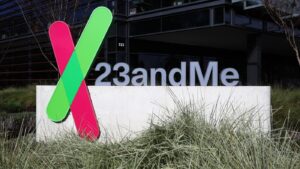
Ripple and the U.S. Securities and Exchange Commission (SEC) have been locked in a protracted legal battle over the sale of XRP, a cryptocurrency developed by Ripple Labs. Despite recent efforts to resolve the conflict, the case remains unresolved, highlighting the complexities of cryptocurrency regulation in the United States.
Since 2020, Ripple has faced allegations from the SEC of conducting a $1.3 billion unregistered securities offering through its XRP sales. A 2023 ruling largely favored Ripple, offering hope to the crypto industry. However, the SEC’s subsequent appeal and Ripple’s cross-appeal have prolonged the dispute, though a resolution may now be within reach.
Background of the Legal Battle
The legal saga began in December 2020 when the SEC charged Ripple and two of its executives with violating securities laws. The case quickly became a focal point for the crypto industry, as it raised fundamental questions about the classification of digital assets.
In a significant turn of events, a 2023 court ruling sided with Ripple, declaring that XRP was not a security. This decision was seen as a landmark victory for Ripple and the broader cryptocurrency sector. However, the SEC’s decision to appeal the ruling, followed by Ripple’s cross-appeal, kept the case alive.
Recent Developments and Attempts at Resolution
Ripple CEO Announces SEC’s Decision to Drop Appeal
In March 2023, Ripple CEO Brad Garlinghouse announced that the SEC would drop its appeal, a move he described as a “resounding victory” for Ripple and the crypto industry. The announcement led to a 14% surge in XRP’s value, reflecting investor optimism.
“This is it—the moment we’ve been waiting for. The SEC will drop its appeal—a resounding victory for Ripple, for crypto, every way you look at it,” Garlinghouse posted on X.
Settlement Negotiations and Legal Hurdles
Despite the positive developments, the path to resolution has been fraught with challenges. In March, Ripple agreed to pay a reduced penalty of $50 million, down from the original $125 million fine. However, procedural issues and opposition from within the SEC have delayed the final settlement.
SEC Commissioner Caroline Crenshaw publicly criticized the settlement, arguing that it undermined the agency’s enforcement efforts and the court’s authority. Her statement underscored the internal disagreements within the SEC regarding the case.
Judicial Rejections and Continued Negotiations
In May, a federal judge rejected the proposed settlement, citing procedural errors. Ripple and the SEC’s joint request to dissolve the injunction and release the escrowed funds was also denied in June. Judge Analisa Torres highlighted the SEC’s compelling case but left the door open for future negotiations.
“With this, the ball is back in our court,” posted Ripple’s Chief Legal Officer Stuart Alderoty. “The Court gave us two options: dismiss our appeal challenging the finding on historic institutional sales—or press forward with the appeal. Stay tuned.”
Implications and Future Outlook
The ongoing legal battle between Ripple and the SEC has far-reaching implications for the cryptocurrency industry. The case has become a litmus test for how digital assets are regulated in the United States, influencing other legal disputes and regulatory frameworks.
As Ripple prepares to drop its cross-appeal and the SEC indicates its willingness to abandon its appeal, the case may finally be nearing a conclusion. However, the legal and regulatory landscape for cryptocurrencies remains uncertain, with potential changes on the horizon as new administrations and regulatory bodies shape policy.
For Ripple, the end of this legal saga could allow the company to refocus on its core mission of building the “internet of value.” As Garlinghouse stated, “We’re closing this chapter once and for all, and focusing on what’s most important—building the internet of value.”
As the cryptocurrency industry continues to evolve, the Ripple vs. SEC case serves as a reminder of the challenges and opportunities that lie ahead. Stakeholders will be watching closely as the final steps unfold, potentially setting new precedents for the future of digital asset regulation.






